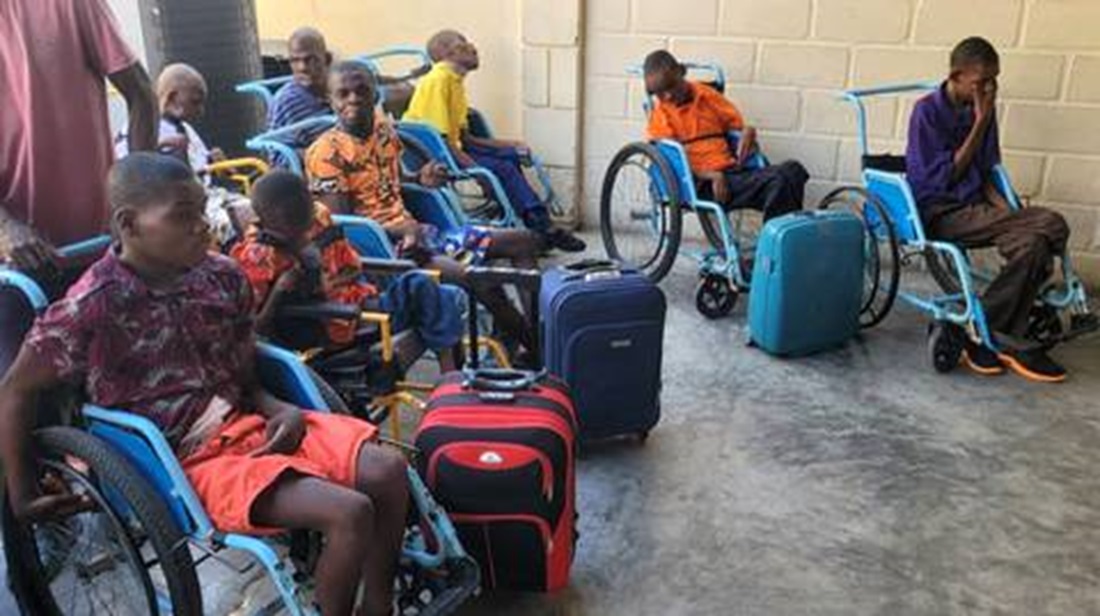Rashaed Esson
Staff Writer
#Jamaica, March 26, 2024 – Fifty-nine disabled Haitian orphans and 13 of their caregivers arrived in Portland Jamaica by boat after 36 hours on the water, on Thursday March 21st, fleeing from the quickly collapsing gang-run, Haiti.
The Haitian refugees are from the HaitiChildren Charity in Haiti, which has fallen victim to gangs. While they are in Jamaica, they will be housed at Mustard Seed Communities, an internationally renowned Catholic charity in Kingston.
Efforts to bring the children to Jamaica were being made for months but despite authorization by the Jamaican Government and from Mustard Seed, they were awaiting permission from the Haitian Government to leave Haiti.
Arielle Jeanty Villedrouin, head of Haiti’s Child Welfare Agency, pushed back at the effort saying that transferring an orphanage from one country to another, was “inconceivable and legally inadmissible.”
Reluctance was also fueled by Haiti’s history of children being taken from the country during crises and never seen or heard from again.
Nine children died during the wait for approval from the Haitian Government; it has been 14-months of hellish conditions due to the gang activity also blamed for intercepting aid and food for vulnerable people in Haiti.
Susie Krabacher is the Co-founder of the HaitiChildren Charity and in speaking to the Miami Herald shared much of the harrowing predicament.
Paul Marie, one of the children who was supposed to be in Jamaica with the others, died on Christmas night at an understaffed and ill-equipped hospital, after being taken to three different health facilities, none of which were equipped to take care of him.
After all that, thanks to the now former Haitian Prime Minister Ariel Henry, they were able to legally make the trip to Jamaica, as he signed the required agreement before he stepped down on March 12, says Krabacher.
Considering that, the issue wasn’t coming to Jamaica, it was leaving Haiti, as pointed out by Krabacher, Co-founder of HaitiChildren, in reports on RJR News.
She says just last week, they tried to transport the kids to Jamaica by plane, but the pilot was barred from taking off from Haiti, hence the reason they came by boat.
After they left the orphanage, the bus carrying the children and their caregivers was stopped by armed men according to Krabacher, who was already in Jamaica monitoring the situation by phone. After hours on the phone with staff, they managed to get the bus free and they were finally on their way.
Krabacher reports that the children showed tremendous courage and strength despite the delays and being stopped when so close to being on their way to better care.
being on their way to better care.
“They are all smiles. They all kept talking over one another into the phone, ‘Mom, tell daddy we are not afraid! Mom, we are so happy. ‘Thank you, mom and daddy. You kept your promise! Will you be there, mom?” she told the Herald.
Krabacher, who is from the US, informed that they were trying to get the children to America but their efforts were shut down by the Haitian government for reasons not mentioned, if known.
This huge accomplishment comes after Jamaica’s Foreign Minister Kamina Johnson-Smith and Prime Minister Andrew Holness were consulted in June 2023 about taking the children in when Haitian political and civil society leaders met Kingston, Jamaica, for negotiations with Haitian Prime Minister Ariel Henry.
Reports say Johnson-Smith was in communication with Mustard Seed’s founder, Priest Gregory Ramkissoon, their conversations centered on how the government could grant temporary legal status to the children and their caregivers, and their care at Mustard Seed.
Johnson-Smith describes the mission as one of mercy, and it’s indeed so as not only is Mustard Seed willing to take the refugees in, they are also willing to take care of them at no cost, according to David Silvera, Mustard Seed’s head of business development, as reported by the Herald.
The children and caregivers were welcomed by officials from the Portland Health Department, police and Jamaica Defence Force Coast Guard. They were processed and given food.
The orphanage is located in the town of Arcahaie and was targeted by gangs. Gangs not only stole their food, but also threatened to kill the children. And staff members have been kidnapped.


 News4 days ago
News4 days ago
 News1 week ago
News1 week ago
 Caribbean News5 days ago
Caribbean News5 days ago
 News4 days ago
News4 days ago

























